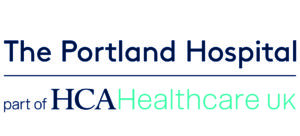A Bladder function assessment will be requested for a number of patients for varying reasons:
Urinary Incontinence (staying dry)Where do I need to come to?
Bladder function assessments are carried out by the paediatric urology clinical nurse specialist (CNS) on level 3, 234 Great Portland Street, opposite the main hospital entrance. Your Consultant may have asked you to complete a “bladder diary” before the assessment which you should bring along with you to the appointment
The assessment is usually carried out over a period of 2-3 hours and you will be required to stay within the hospital proximity for the duration of the assess.
How to fill in a Bladder Diary?
You may be asked by your Consultant to complete a bladder diary before you have your bladder function assessment.
This diary should be completed over a period of 48 hours or longer if you wish. We appreciate this can be difficult to do if your child is at school, so over a weekend is fine. Please note if a weekend day is different to a week “school” day in terms of your child’s toileting habits.
The Diary should include:
What is involved?
The assessment will begin with the Urology Nurse asking a number of questions regarding your child’s health and their history of weeing and any urinating problems (If you are unable to attend the appointment with your child, please ensure it is a parent/ carer who has detailed information surrounding your child’s urinating history). The nurse will also examine the bladder diary and help work through with you what a typical day involves with regard to your child’s “normal” toileting habits.
You will then be asked to encourage your child to drink steadily until your child would normally take themselves or ask to go to the toilet, until they have a full bladder. It is important that they relax and urinate normally as they would do at home or school. Forcing urine can give false recordings and may lengthen the duration of your appointment
The nurse will then show you to the Uro-flow toilet. Uroflowmetry is performed by having your child urinate into a special funnel that is connected to a measuring instrument. The measuring instrument calculates the amount of urine, rate of flow in seconds, and length of time until completion of the wee. This information is converted into a graph and interpreted by your consultant/ urology nurse specialist.
Bladder scan
The nurse will then immediately need to perform a bladder scan (ultrasound) to see if your child empties his/her bladder completely when they urinate. To perform this scan your child will be asked to lie on their back and some “jelly” will be applied to their tummy prior to the scan.
We will need to perform both these tests 2-3 times to gives us a clear picture of your child’s “normal” usual urinating habits.
The assessment is completely non-invasive and there are no risks surrounding the tests.
What happens next?
Your nurse will then collect all the information together and provide a detailed report to give to your consultant before your next outpatient’s appointment with them.
The results will be reviewed and used to decide what course of treatment would benefit your child, this may involve treatment with medicines, learning new behaviours or
other treatment options may be recommended.
For further information, please contact:
If you have any questions or problems either before or after the surgery, please do not hesitate to contact:
Urology CNS: 020 7580 4400 ext: 10838
(09:00 – 17:00 Monday to Friday) or email: [email protected]
Out of hours: Contact our Paediatric Site Practitioner on: 02075804400 ex 10843
